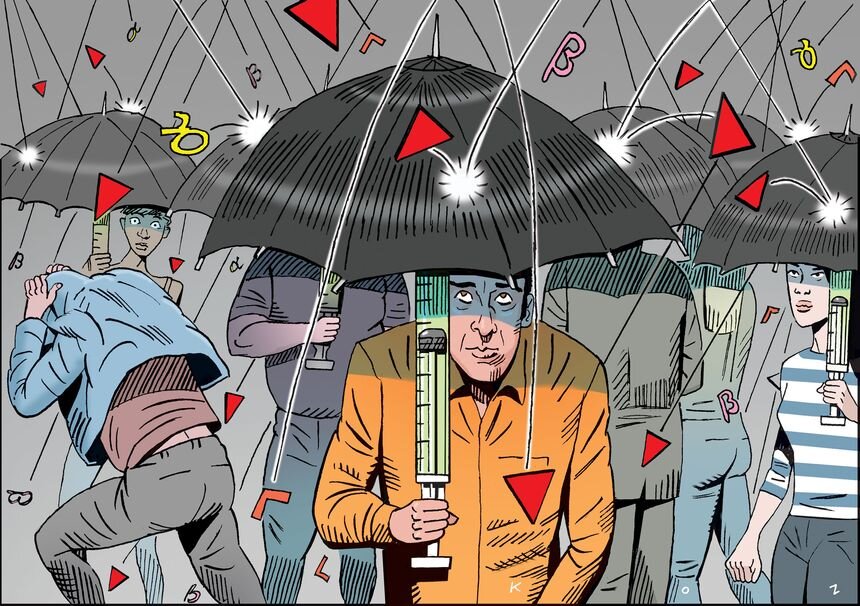Power Reads: 5 Interesting Articles That Will Help You This Week
/Each week, I select a few articles that rise above the fray and hopefully help you on your journey in leadership and the CRE world. They pull from one of four "corners": corporate real estate, technology, management science and anything positive. Each day we can become a better version of ourselves.
1. Tech Workers Who Swore Off the Bay Area Are Coming Back
“It was just a hellhole living here,” said Mr. Osuri, 38, the founder and chief executive of a cloud-computing company called Akash Network. He decamped for his sister’s roomy townhouse in the suburbs of Columbus, Ohio, joining an exodus of technology workers from the crowded Bay Area.
But by March, Mr. Osuri was itching to return. He missed the serendipity of city life: meeting new people, running into acquaintances on the street and getting drinks with colleagues. “The city is full of that — opportunities that you may never have expected would come your way,” Mr. Osuri said. He moved back to San Francisco in April.
The pandemic was supposed to lead to a great tech diaspora. Freed of their offices and after-work klatches, the Bay Area’s tech workers were said to be roaming America, searching for a better life in cities like Miami and Austin, Texas — where the weather is warmer, the homes are cheaper and state income taxes don’t exist.
2. Work-From-Home May Be Efficient, But Google Says Get Back To Offices Anyway
Despite reports that Google engineers believe they are as productive working at home as they used to be in the office, the tech giant is sticking with plans to bring most of its employees back to their offices much of the time.
Google wants much of its workforce, about 60%, to return to physical offices three days a week, starting in September. The matter was the subject of a memo and then an open blog post by CEO Sundar Pichai in May.
He said in the post that 20% could work at home full time, while the other 20% could apply for a transfer to another Google office. Google is reviewing applications from employees regarding their work situations come September.
3. Wall Street’s New Rivalry: Who Can Meet the Most People in Person
Wall Street investment bankers are well-accustomed to jockeying for multimillion-dollar fees on corporate deals. Now, the game is focused on just showing up.
After more than a year of Zoom, Wall Street’s elite are beginning to emerge from behind their screens and returning to the timeworn custom of in-person client visits, handshakes and wine-soaked dinners.
Rivals Goldman Sachs Group Inc. and JPMorgan Chase & Co., which have already brought their employees back to the office faster than the rest of Wall Street, are urging their bankers to get out and visit boldfaced corporate clients —and quickly, before others do.
4. 'Safety Stock' Driving Warehouse Leasing To More Record Highs
Metro Atlanta industrial landlords are sailing toward another year of record absorption as companies increase their leasing activity.
The wind in the sails, this time, is more than just tenants building out their e-commerce delivery networks. Companies also are taking on extra storage space after the coronavirus pandemic exposed a weakness in the just-in-time delivery model that kept inventories razor thin.
“Just-in-time is a great concept, but when you have shocks to the system like we have, you also realize that lean inventories can cost you sales,” said Lisa Ward, the managing director of Atlanta-based industrial developer Core5 Industrial Partners.
5. The Reassuring Data on the Delta Variant
Martin Kozlowski
You read the same alarming headlines every few months, now with Greek letters. As the virus that causes Covid-19 evolves and mutates, the same concerns pop up about whether the variant evades vaccines, makes people sicker than the old versions, and increases transmissibility. What we know about the Delta variant is reassuring.
One of the most important questions is whether vaccines are still working well. The best way to answer that is to look at the number of vaccinated people getting serious Covid-19 symptoms or being hospitalized. A new study from the U.K. found that vaccines are still incredibly effective at preventing serious illness with the Delta variant circulating.
The Pfizer vaccine was 96% effective after two doses at preventing hospitalization, meaning the average unvaccinated person in the study was more than 25 times as likely to be hospitalized with Covid as the average vaccinated one. (This almost certainly understates the protectiveness of the vaccine, as the vaccinated cohort was older and had a higher incidence of pre-existing conditions than the unvaccinated one.) The Johnson & Johnson vaccine produces strong neutralizing antibodies and cellular responses against the Delta variant, still present eight months after administration.
Your success blesses others. I wish you a great a hugely impactful week!







